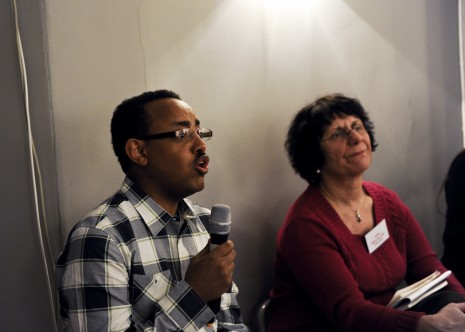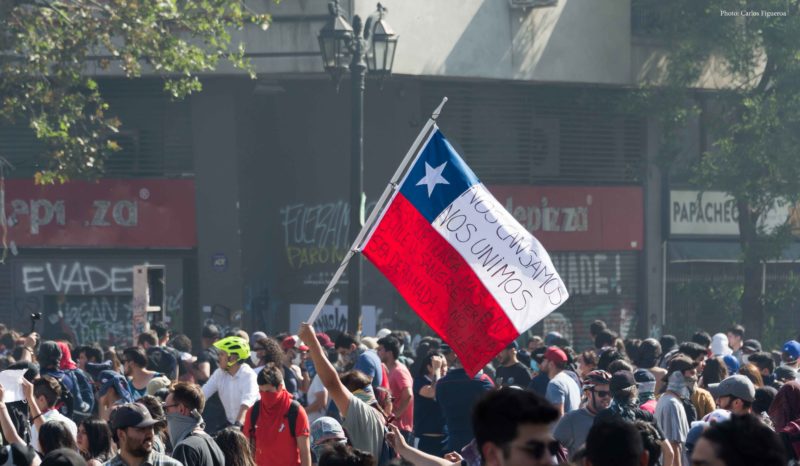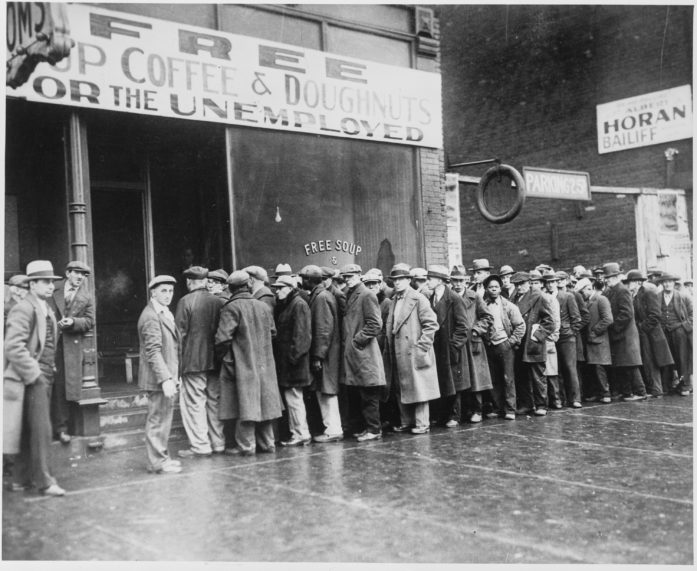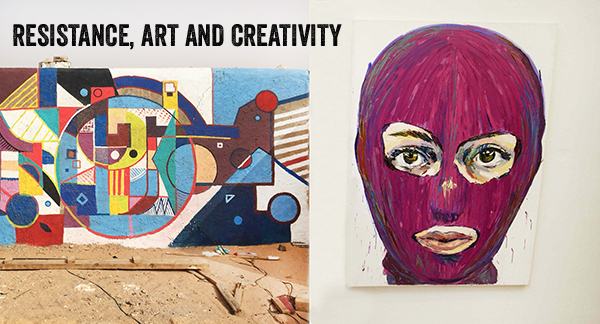
Coming to a new country to escape a war, a conflict or political pressure in the country of origin is never easy. It doesn’t matter who you were at home, what profession you had there or how much you were respected or liked, as an asylum seeker or a refugee you are hardly ever welcome in a country that is supposed to be your new safe haven. As if leaving your family, your belongings, your life and your home wasn’t difficult enough, starting a new life “from scratch” or trying to pick up from where you left off requires a bit more than just using your own two hands and two legs: it’s a slow climb up the hill, and the hill is really a steep mountain.
Even though Sweden is one of the most “foreigner-friendly” countries in Europe, immigrants face many difficulties trying to fit in or to continue with the professions they once had in their homeland. Once their residency status in Sweden is resolved, immigrant doctors, professors, engineers or journalists are, in spite of their high education, quite likely to end up as cleaners, garbage collectors or security guards. One of the biggest obstacles to work in their professions in Sweden is language. It is particularly journalists, whose working tool is language, who end up doing everything else but what they were educated to do.
Azar Mahloujian, a writer of Iranian origin and one of the panellists at the Global Bar held on March 15th read a passage from her book from 1995 ”The Torn Pictures”, describing her own dramatic escape from Iran and her new life in exile as an immigrant in Sweden. She read about the discrimination of non-European immigrants in the Swedish labour market and how their competence is often distrusted, invisible and undesired in Sweden.
The question is: Why is Sweden so bad at utilising the exiled journalists’ knowledge and experience? Furthermore, what role do exiled journalists living in Sweden play in the fight for democracy and respect of human rights in their home countries?
David Isaksson asked Azar Mahloujian what it was like for her ending up in Sweden.
“I was a librarian in Iran until I escaped from the country. I worked here in Sweden as a journalist in Persian language for three years, then I began to write books. I have also been an interpreter for nearly 25 years so I have met many people who came after me and had fresh information about how it is to be living in exile.”
She went on discussing about the difficulties specific for exiled journalists: Being a journalist in Sweden is a very attractive job and many Swedes want to work as journalists, which is why the competition is higher than usual. Azar also pointed out that many exiled journalists have difficulties proving their professional identity and abilities: “It can be complicated (for exiled journalists) to get their employment certificates from their countries. Sometimes the editors or colleagues are in jail, so no one can confirm that they have been working as journalists. And sometimes they write under a pseudonym.” Azar also pointed to the fact that there is a lack of trust towards an exiled journalist: “Their political affiliation is often questioned. It can be difficult to know if the exiled journalists are with the opposition or with the regime.”
David Isaksson turned to Mesfin Negash, an exiled journalist from Ethiopia, to ask him about what he thought about the media coverage of Ethiopia in Sweden. Mesfin expressed his surprise about the disconnection between the political establishment in Europe and the public, including journalists. He said that only a few Swedish journalists know facts about Ethiopia, which became clear to him when he was interviewed about Ethiopia by the Swedish media: “Sweden has been one of the most important supporters of development in Ethiopia and Sida has been giving aid to Ethiopia for at least five, six decades. The media should be aware of the situation in the countries that are receiving aid from their country.” Mesfin said that the exiled journalists can always extend a helping hand to Swedish journalists: “I have helped more than ten Swedish journalists with information for their reporting about the imprisoned Swedish journalists Johan Persson and Martin Schibbye in Ethiopia.” When asked whether he has been invited to take part in the Swedish media debate, Mesfin answered: “No, I can hardly say so. I have been interviewed by other media, but apart from my article in Dagens Nyheter I have not been able to take part in the Swedish media debate in a serious and critical way.”
Hiba Daniel, a journalist at Ekot’s foreign news desk, said that the main obstacle for exiled journalists is the language: “The Swedish Radio has been giving exiled journalists an opportunity to be a part of our broadcasting in their own language, SR international or the foreign news desk where I work. The Swedish Radio has an international interest – exiled journalists, writers and activists are playing a crucial role for us. With many of them we have good contacts; the Iraqi journalist and documentary filmmaker Ali Taleb is one of them. But to do live broadcast at the Swedish Radio you have to speak Swedish or English.”
With an enormous increase in the importance of the social media in the overall media sphere, David asked Hiba whether the Swedish Radio see immigrants in Sweden as useful sources in this perspective? Hiba answered: “During the Egyptian revolution we could, thanks to bambuser, Facebook and Twitter, see what was happening and we could use it as a source. The journalistic map is changing. We saw in the Tahrir Square that women who had only recently graduated from high school were all of a sudden doing a better job than a person with a PhD in journalism.”
The social media has also created new positive opportunities for exiled journalists: exiled journalists can still make an impact on their compatriots in Iran and Ethiopia from Sweden. Hiba explained that the journalists can do this by writing articles about what their regimes are doing and administrating the information they get from the people in their countries through bambuser.
Mesfin Negash, however, showed a different perspective on exile journalism: “It pains me too see when a journalist cannot work in his profession in exile. It is an indirect help for a dictator at home. What they want at the end of the day is silenced voices. For me, there is no difference between going to jail in Ethiopia or living in silence in exile. It has an impact on the democratisation process at home if the journalists cannot work in exile.”
A question from the audience was posed to Hiba: What has the Swedish Radio as an institution done to facilitate learning about the Swedish perspectives on journalism for exiled journalists?
Hiba replied: “We have on-the-job training courses and one of the challenges that we have is when an exiled journalist has to be in a way transformed from oppositional, critical to objective.” She explains further: ”If you want to make people believe what you are saying in Sweden, you have to bring the two sides of a story. In the Arabic department we have trainees and we are training them in language and how the Swedish society works, but we are limited when it comes to employing people”, said Hiba Daniel.
David Isaksson asked the panellists to give examples on what the Swedish society could do for exiled journalists and writers?
Mesfin Negash answered: “I wish the Swedish media had regular contact with organisations like RSF (Reporters Without Borders), PEN and Amnesty (International), because they have at least a list of newly arrived exiled journalists and writers”.
Azar Mahloujian continued by reflecting on which organisations or institutions could be the central point for the exiled journalist: “Maybe AMS (the Employment Service) can do something, SFI (Swedish for immigrants), Reporters Without Borders, or Fojo (Media Institute) could be good institutions. If they get resources they can be the place where these journalists could meet, so we can know how many they are. These journalists have left their countries because of the lack of democracy and they can build the future of their countries (from here).”
In another question raised by the audience somebody asked whether the panellists thought that there would be any development of English-based media in Sweden in the near future that can incorporate these exiled journalists?
Since she’s working in the public broadcasting service, Hiba Daniel answered first: “I hope so. Sweden is very limited right now (when it comes to media in English). The Swedish Radio is broadcasting in English. I don’t know why the TV and the written media are not doing anything in English”
In conclusion, Hiba Daniel gave some encouraging advice to all exiled journalists struggling to survive in their profession:
“You need to see yourself as a possibility, it’s a matter of having competence and in the best of the worlds you should be able to use your competence. Remember, we are word warriors and please start networking.”




